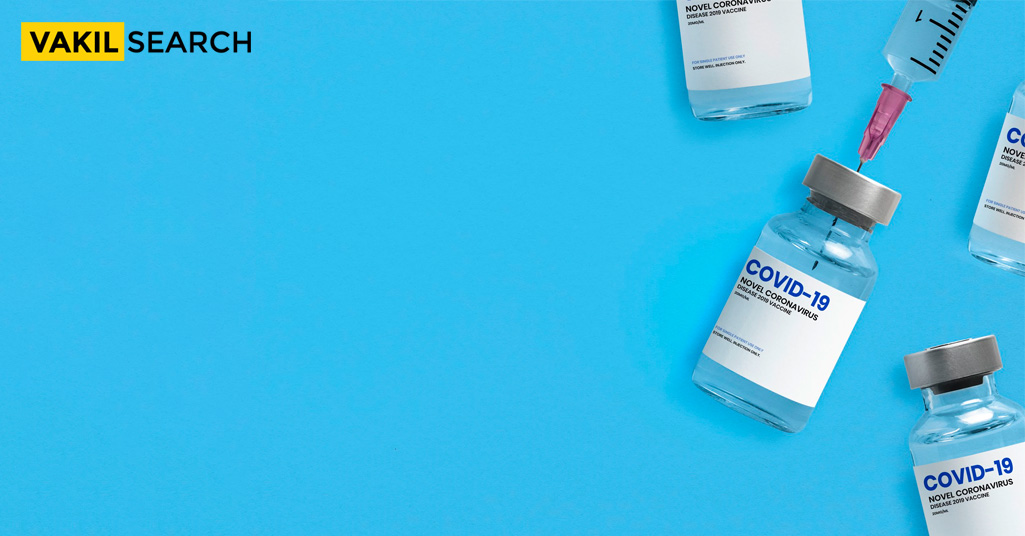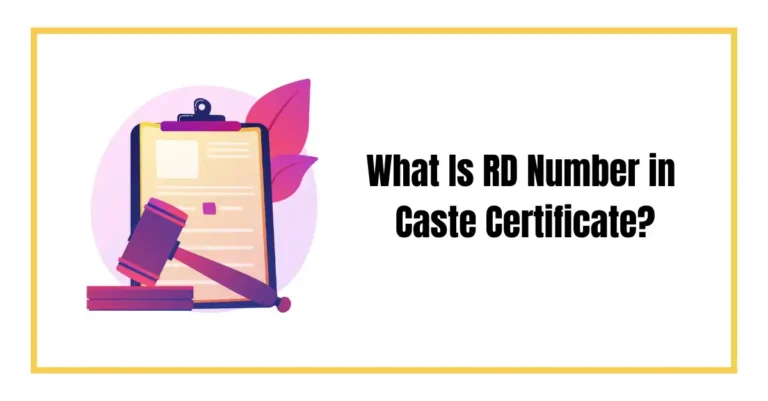COVID-19 Vaccines are subject to GST because they do not fall under the category of exempt pharmaceutical commodities.There will be a 5% GST added to the vaccine's price.
Overview
The COVID-19 pandemic has been a challenging time for the world, but the introduction of vaccines has brought hope. In India, the vaccination drive commenced in January 2021, with two approved vaccines – Covishield and Covaxin. As the nation accelerates its vaccination efforts, it is essential to understand the tax implications surrounding these life-saving vaccines. This article delves into the Goods and Services Tax (GST) rates on vaccines, taxes on their import, transportation, and storage, all crucial aspects in ensuring equitable access and a successful vaccination campaign. GST Rates on COVID Vaccines
Different Types of COVID-19 Vaccines Available in India
The COVID-19 pandemic brought the world to a standstill, but hope arrived in the form of vaccines. In India, the Prime Minister launched the COVID-19 vaccination drive on 16 January 2021, aiming to curb the spread of the virus and protect the population. As of now, two types of COVID-19 vaccines have been approved for the vaccination drive.
Covishield Vaccine: Manufactured by Serum Institute of India Ltd., Covishield is developed by Oxford-AstraZeneca. It is a viral vector vaccine based on the replication-deficient chimpanzee adenovirus vector. Covishield has been widely supplied to all states and union territories.
Covaxin Vaccine: Produced by Bharat Biotech International Ltd., Covaxin is an indigenous vaccine developed in collaboration with the Indian Council of Medical Research (ICMR). It is an inactivated whole-virus vaccine that triggers an immune response without causing disease. Covaxin has been supplied to 12 states.
The vaccination drive began with healthcare and frontline workers receiving the vaccine first. The next eligible group includes people over 50 years of age and people under 50 years with specified health conditions.
As the vaccination program continues to expand, there is also interest in the HSN (Harmonised System of Nomenclature) codes and GST (Goods and Services Tax) rates for vaccines. These details help in classification and taxation of goods and services. Boosters, GST on vaccines, and GST on COVID vaccines are other important topics that are being discussed to ensure equitable access to vaccines and a successful vaccination campaign.
Is the COVID-19 Vaccine Taxable Under GST?
The COVID-19 pandemic brought unprecedented challenges to the world, but the development of vaccines has been a ray of hope in combating the virus. In India, vaccines are considered life saving medicines and are treated as goods under the Goods and Services Tax (GST) regime.
As of today, the COVID-19 vaccine is classified as a good and will be treated similarly to other vaccines under the GST laws. According to Section 7 of the CGST Act, 2017, any supply of goods or services, or both, made for consideration in the course of business attracts GST.
The place of supply for the COVID-19 vaccines will be the location where the distribution takes place. Presently, the vaccine is available for purchase only by the Indian Government and its State Governments directly from the respective vaccine manufacturers.
The value of supply for the vaccines under the GST will be determined based on the transaction value at the supply level. This value includes various components such as research and development costs, the expenses associated with conducting trials, raw materials costs, labour costs, and other related expenditures.
It is important to note that vaccines do not fall under the category of exempted pharmaceutical goods; hence, they are taxable under the GST. As a result, the appropriate GST rate will be applied to the supply of COVID-19 vaccines.
Ensuring access to vaccines is a crucial aspect of controlling the pandemic and safeguarding public health. The GST regulations play a vital role in facilitating the distribution and availability of vaccines, enabling the nation to combat the COVID-19 crisis effectively.
As the vaccination drive progresses and more citizens receive the COVID-19 vaccine, it is imperative to maintain transparency and compliance with the GST laws to support the nation’s fight against the pandemic.
Rate of GST on COVID-19 Vaccine
In India, the COVID-19 vaccine falls under the category of ‘Drugs and Pharmaceuticals’ in the Goods and Services Tax (GST) framework. Specifically, both animal and human vaccines are charged at a GST rate of 5% (HSN Code 3002/3006). This means that the COVID-19 vaccine will attract a GST of 5% on its cost.
For instance, if the cost of the vaccine is INR 260, then the GST applicable on it will be INR 13 (260 * 5%). This GST amount is added to the vaccine’s cost, and the final price includes the GST component.
However, it’s important to note that the manufacturers of the COVID-19 vaccine are not eligible to claim any Input Tax Credit (ITC) for the GST paid on the goods and services used in the production and supply of the vaccine. Input Tax Credit allows businesses to claim a credit for the GST they have paid on their purchases, reducing their overall tax liability.
The government has taken the decision not to allow ITC for COVID-19 vaccines to ensure that the benefits of reduced GST rates directly reach the end-users and the vaccines are made more affordable and accessible to the general public.
The 5% GST rate on COVID-19 vaccines is a measure taken by the government to facilitate the vaccination drive and combat the pandemic effectively. By making vaccines more affordable, the government aims to encourage higher vaccination rates and protect the health and well-being of the population.
As the vaccination campaign progresses, the rate of GST on COVID-19 vaccines remains a crucial aspect of ensuring the accessibility and affordability of vaccines to all sections of society. This will play a pivotal role in curbing the spread of the virus and achieving widespread immunity against COVID-19.
Tax on Import of Vaccines
While India is expected to manufacture a majority of its COVID-19 vaccines domestically, the possibility of importing vaccines in the future remains open. The import of COVID-19 vaccines is subject to certain taxes and duties as per the Customs Tariff Act, 1975.
As it stands, vaccines imported into India are subject to a Basic Customs Duty (BCD) of 10%. In addition to the BCD, a Social Welfare Surcharge of 10% is also applicable. These charges are levied on the cost of the imported vaccines.
Apart from the Basic Customs Duty and Social Welfare Surcharge, an Integrated Goods and Services Tax (IGST) of 5% will also be charged at the time of sale. This means that the IGST will be added to the total cost of the imported vaccines when they are sold in the country.
The assessment of these taxes and duties is currently under review by the Central Government, and there is a possibility that they may be lowered in the future. Such a move would be aimed at boosting the supply of COVID-19 vaccines in the country and making them more affordable and accessible to the public.
The government’s focus on reducing import taxes and duties on vaccines is part of its larger strategy to combat the pandemic effectively. By facilitating the import of vaccines at a reduced cost, the government aims to ensure a steady supply of vaccines to meet the vaccination needs of the population.
It’s important to note that these tax provisions are subject to change as per the government’s policies and evolving circumstances related to the COVID-19 situation. The government remains committed to taking necessary steps to ensure the availability of vaccines to protect the health and well-being of its citizens.
Tax on Vaccine Transportation and Storage Services
Transportation and storage of vaccines play a crucial role in ensuring their efficient distribution and availability to the public. Under the CGST Act, 2017, vaccines are considered goods, and their transportation services are subject to specific tax regulations.
When a manufacturer utilises the services of a Goods Transport Agency (GTA) for distributing COVID-19 vaccines, GST will be charged on the transportation services. The applicable GST rate on vaccination services will be either 5% or 12% of the freight cost. The rate depends on whether the GTA has opted to avail Input Tax Credit (ITC) or not.
If the manufacturer uses in-house transportation services for vaccine distribution, the supply will be treated as a composite supply. In this case, a flat 5% GST will be charged on the freight costs.
Given the sensitivity and urgency of COVID-19 vaccine distribution, timely and efficient transportation is of utmost importance. The tax rates have been designed to facilitate smooth movement and distribution of vaccines across the country.
Apart from transportation, the storage of COVID-19 vaccines poses another critical requirement. Cold storage facilities are essential for preserving the efficacy of the vaccines. As authorised manufacturers produce large quantities of vaccines, the demand for cold storage will increase substantially.
Currently, GST on ‘Provision of cold storage services’ is set at 18%. However, the government is yet to announce the specific applicability of GST on COVID-19 vaccines. Once the official guidelines are published, all queries regarding the taxability of COVID-19 vaccines will be clarified.
It’s worth noting that the government is continuously monitoring the COVID-19 situation and may introduce specific tax incentives or exemptions to facilitate vaccine distribution and storage. These measures aim to ensure that vaccines reach every corner of the country efficiently and at an affordable cost.
The tax regulations on vaccine transportation and storage are integral to the government’s commitment to combating the pandemic effectively. By supporting seamless vaccine distribution and storage, these tax provisions contribute to the nation’s collective effort to safeguard public health and overcome the challenges posed by COVID-19.
As the situation evolves and more information becomes available, the government will likely fine-tune the tax measures to align with the dynamic requirements of the vaccination drive. In the pursuit of safeguarding public health, these tax regulations are bound to play a pivotal role in India’s fight against the pandemic.
Conclusion
In conclusion, India’s battle against the COVID-19 pandemic has been bolstered by the availability of two types of vaccines: Covishield and Covaxin. The government’s decision to treat vaccines as goods under the GST regime at a rate of 5% reflects their commitment to making vaccines accessible and affordable to all. Furthermore, efforts to streamline vaccine transportation and storage services demonstrate a dedication to ensuring widespread vaccine distribution. As the situation evolves, the government remains vigilant, ready to adapt tax measures to support the nation’s fight against the pandemic and protect public health.










